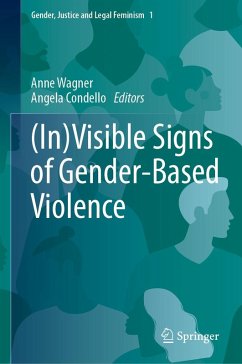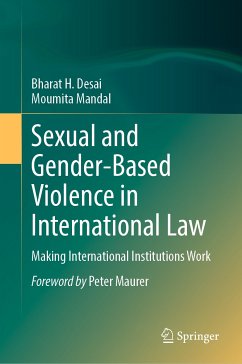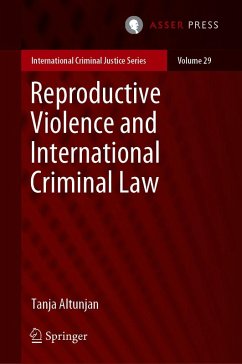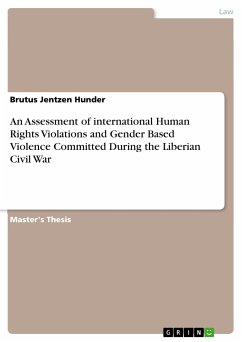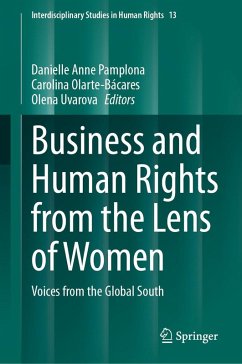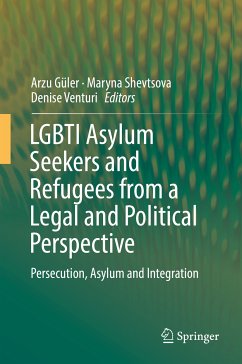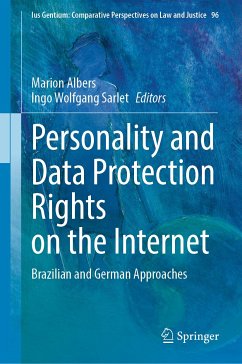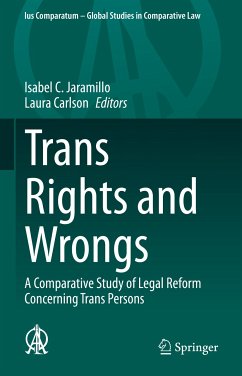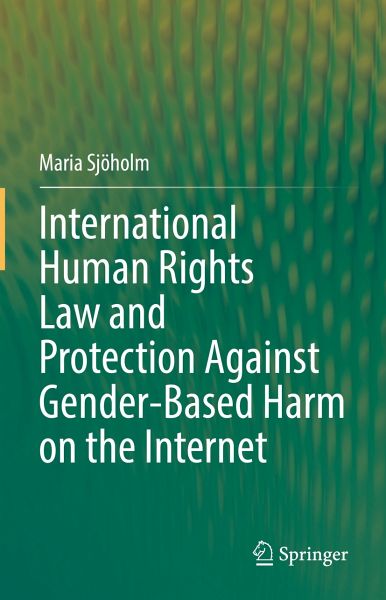
International Human Rights Law and Protection Against Gender-Based Harm on the Internet (eBook, PDF)
Versandkostenfrei!
Sofort per Download lieferbar
96,95 €
inkl. MwSt.
Weitere Ausgaben:

PAYBACK Punkte
48 °P sammeln!
This book analyses gender-based offences on the Internet from the perspective of international human rights law, interwoven with rights theories and feminist legal theories. It investigates whether international human rights law is applicable in regulating harmful online conduct and speech, with a focus on sexual violence, various forms of harassment, sexist hate speech and harmful pornography. This involves assessing whether gender-based online offences are considered violations of international human rights law and - if they are recognised as such explicitly or by way of interpretation - the...
This book analyses gender-based offences on the Internet from the perspective of international human rights law, interwoven with rights theories and feminist legal theories. It investigates whether international human rights law is applicable in regulating harmful online conduct and speech, with a focus on sexual violence, various forms of harassment, sexist hate speech and harmful pornography. This involves assessing whether gender-based online offences are considered violations of international human rights law and - if they are recognised as such explicitly or by way of interpretation - the extent of state obligations. The book reviews a range of international law sources, such as selected international human rights law treaties, case law, soft-law documents and academic scholarship.
The application of general human rights law provisions to the online sphere is evaluated by considering the online/offline coherence of provisions as well as potential gaps, inconsistencies and disadvantages that exist in the regulation of online gender-based offences. The makeup, aim and effect of social spheres, areas of law and legal principles are thus assessed in relation to gender and the Internet. Aspects discussed include the architecture of the Internet, the structure of public international law, the harm principle as employed in domestic law and international human rights law, and the scope of particular rights, mainly involving the freedom of expression and the right to privacy. Working from the premise that the transposition of international human rights law to the Internet must ensure the former's functionality and effectiveness, the book argues that a contextual application of rights is called for. This requires assessing what is harmful online - including the effects of online speech and conduct - and what are effective means of regulating liability on the Internet. In turn, such assessments require a gender-sensitive approach.
Dieser Download kann aus rechtlichen Gründen nur mit Rechnungsadresse in A, B, BG, CY, CZ, D, DK, EW, E, FIN, F, GR, HR, H, IRL, I, LT, L, LR, M, NL, PL, P, R, S, SLO, SK ausgeliefert werden.



